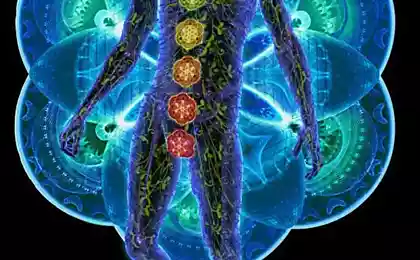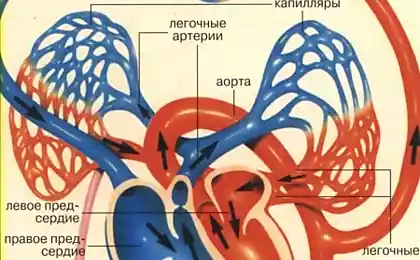868
The heart can regulate energy balance throughout the body

Using the experimental mice, researchers found that feeding the pups mouse to regulate their food with a high fat content so that pups could manage certain heart-genetic bond that prevents excessive weight gain and protects against dangerous changes in blood sugar levels.
Senior study author Dr. Eric Olson, a professor of molecular biology at UT Southwestern announced:
"Obesity, diabetes, and coronary artery disease - the main cause of human death and disability, and they are all connected with metabolism. This - the first demonstration that the heart can regulate systemic metabolism, which we think opens up a whole new area of research in medicine ».
Scientists have used genetically altered mice and special experimental drug, to control the level of the two regulatory molecules in the heart, and found that MED13, a vital part of the gene sequence of the heart, controls metabolism of the whole body, while the miRNA-208a, required for the heart miRNA blocks the action MED13.
MicroRNAs - small pieces of genetic material, which are thought to have been little interest in view of the fact that they were unable to adjust the levels of proteins used in the processes of the body as a communication larger genetic material. However, in recent years, studies have found that these molecules - key regulators diseases. Scientists have identified at least 500 of these miRNAs.
Dr. Olson, one of the five co-founders of the biotechnology company miRagen Therapeutics Inc. concludes:
"Several years ago, our laboratory has focused on this, to a certain heart, microRNA - miR-208a, and then we were working with a biotechnology company to develop a drug that blocks miR-208a. By studying the effects of this drug, we noticed that the animals vaccinated inhibitor, proved to be very resistant to eating a high-fat ».
The study was based on the original observation that identified the role of miR-208a and its impact on the MED13 in the management of systemic metabolism. Dr. Gruter adds that future research will be focused on the study of how this important cardiac microRNA interacts with cells throughout the body.
Researchers have discovered important new functions of proteins Cohesin
Yoga can help prevent psychological problems in adolescents























